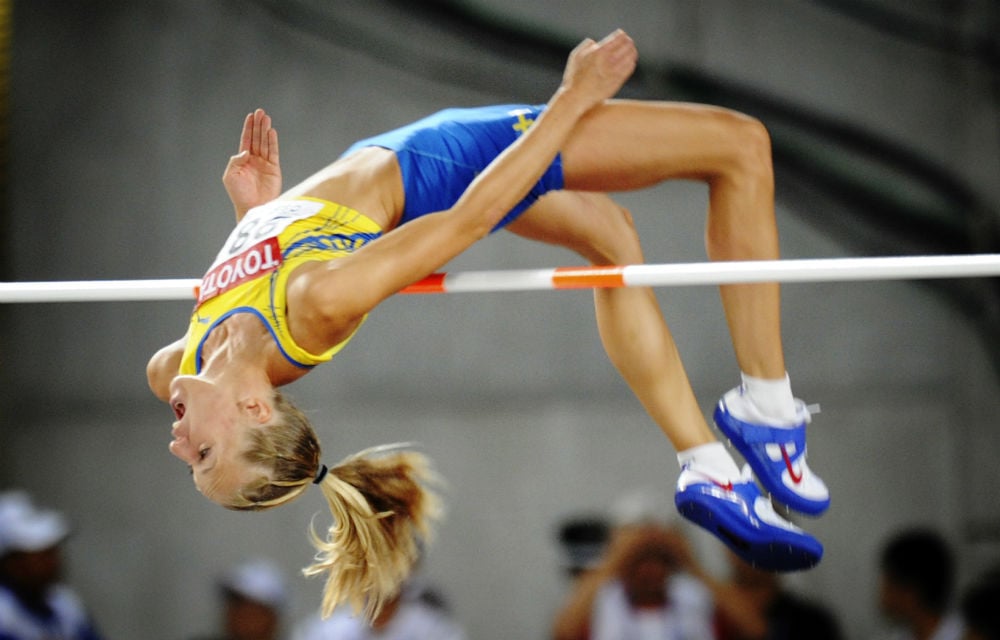
What sales teams can learn from high jumpers
In some ways, salespeople are a lot like athletes. They operate in a highly competitive field, and their performance is directly related to their skills, their capabilities, and their personal drive. In both cases, a certain amount of inborn talent is necessary to reach the highest levels of performance.
But where professional athletes understand that they need a great coach, effective measurements, and continual practice in the right skill sets, many companies behave as though all they need to do is hire the right salespeople and then set them loose with a brief product training and an aggressive sales goal.
Unfortunately, that means that many fail to unleash the full potential of their sales teams. Here are three things sales teams would do well to learn from top athletes.
You need both a “big brother” and a coach
Consider an athlete who wants to compete in high jump at the Olympics. In order to reach that goal, the athlete needs someone to hold them accountable (a “big brother”) and someone to help them build their skills and strength (a coach). In some cases, the coach and the “big brother” are the same person, and in some cases they are different people, but in every case, without those two roles, the athlete will never achieve all that they could.
The same is true for salespeople. Unfortunately, most organizations behave like a “big brother” without also providing a coach. They measure salespeople based on activities and sales quotas, without taking the time to help them build their skills and strengths. Traditional CRMs encourage this approach by providing metrics that are useful for judging salespeople, without providing information and processes that help salespeople improve.
You need to be measured
No Olympic high jump coach would dream of telling an athlete, “Just do your best and you’ll be fine.” In order to improve, the athlete’s performance must be measured. Great athletes crave the measurement, because those measurements drive them to continually outperform their own previous “best.”
High performing sales teams measure not only output, but also process and progress, so that salespeople can adjust their performance along the way to continually outdo their own previous “best.”
You need to practice the right things
An athlete training for the high jump certainly spends time practicing the jump itself, but they also spend time practicing the individual skills involved and strengthening the relevant muscle groups. And they don’t just practice any physical skills. They target those that will best support their performance at their particular sport. An athlete who spends all their time doing push-ups, for instance, is unlikely to build the right muscle sets for the high jump, while an athlete who spends all their practice time doing squats is unlikely to perform their best at the breast stroke.
Likewise, salespeople should be supported not in doing more activities, but in improving and practicing the activities and skills that impact sales performance. Your sales leaders must take the time to understand the activities and behaviors that impact sales performance, and then set up training, coaching, and reinforcement to measure and improve them.
Very few CRMs, in their out-of-the-box configuration, support salespeople in becoming the best they can be. They measure activities, but not progress. They provide “big brother” accountability without coaching support. And they don’t make it easy for sales teams to identify and practice the skills that move the needle.
With modifications, some can rise to the occasion and become true sales effectiveness platforms. A few, like our own Membrain, are designed to be true effectiveness platforms that serve the genuine needs of sales teams and help them achieve higher performance.
When a tool like Membrain is used in place of (or plugged into) traditional CRM, it becomes a big brother, a coach, and something more: A guiding companion that leads salespeople through the right activities, provides them with the tools to learn and be coached right inside their workflow, and helps them accomplish the things that matter to them.
I’d love to show you how it can work for your team. Schedule a time with me here.

By George Brontén
George is the founder & CEO of Membrain, the Sales Enablement CRM that makes it easy to execute your sales strategy. A life-long entrepreneur with 20 years of experience in the software space and a passion for sales and marketing. With the life motto "Don't settle for mainstream", he is always looking for new ways to achieve improved business results using innovative software, skills, and processes. George is also the author of the book Stop Killing Deals and the host of the Stop Killing Deals webinar and podcast series.
Find out more about George Brontén on LinkedIn







